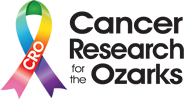ECOG-ACRIN EA6141
This randomized phase II/III trial studies the side effects and best dose of nivolumab and ipilimumab when given together with or without sargramostim and to see how well they work in treating patients with stage III-IV melanoma that cannot be removed by surgery. Monoclonal antibodies, such as ipilimumab and nivolumab, may kill tumor cells by blocking blood flow to the tumor, by stimulating white blood cells to kill the tumor cells, or by attacking specific tumor cells and stop them from growing or kill them. Colony-stimulating factors, such as sargramostim, may increase the production of white blood cells. It is not yet known whether nivolumab and ipilimumab are more effective with or without sargramostim in treating patients with melanoma.
ECOG-ACRIN EA6192
This phase II trial investigates how well biomarkers on PET/CT imaging drive early discontinuation of anti-PD-1 therapy in patients with stage IIIB-IV melanoma that cannot be removed by surgery (unresectable). Anti-PD-1 therapy has become a standard therapy option for patients with unresectable melanoma. This trial is being done to determine if doctors can safely shorten the use of standard of care anti-PD1 therapy for melanoma by using biomarkers seen on PET/CT imaging and tumor biopsy.
ECOG-ACRIN EA6194 – Temporarily Closed
This phase II trial studies the effect of pembrolizumab alone or in combination with CMP-001 in treating patients with melanoma that can be treated by surgery (operable). Immunotherapy with monoclonal antibodies, such as pembrolizumab, may help the body's immune system attack the cancer, and may interfere with the ability of tumor cells to grow and spread. Immunotherapy with CMP-001 may induce changes in body's immune system and may interfere with the ability of tumor cells to grow and spread. The addition of CMP-001 to pembrolizumab could improve the ability of the immune system to shrink tumors and to prevent them from returning.
NRG-BN013
This phase III trial compares the effectiveness of fractionated stereotactic radiosurgery (FSRS) to usual care stereotactic radiosurgery (SRS) in treating patients with cancer that has spread from where it first started to the brain. Radiation therapy uses high energy x-rays to kill tumor cells and shrink tumors. FSRS delivers a high dose of radiation to the tumor over 3 treatments. SRS is a type of external radiation therapy that uses special equipment to position the patient and precisely give a single large dose of radiation to a tumor. FSRS may be more effective compared to SRS in treating patients with cancer that has spread to the brain.
SWOG S2015
Patients with a primary invasive melanoma are recommended to undergo excision of the primary lesion with a wide margin. There is evidence that less radical margins of excision may be just as safe. This is a randomised controlled trial of 1 cm versus 2 cm margin of excision of the primary lesion for adult patients with stage II primary invasive cutaneous melanomas (AJCC 8th edition) to determine differences in disease-free survival. A reduction in margins is expected to improve patient quality of life.
SWOG S2101 – Temporarily Closed
This phase II trial studies the good and bad effects of the combination of drugs called cabozantinib and nivolumab in treating patients with melanoma or squamous cell head and neck cancer that has spread to other places in the body (advanced). Cabozantinib may stop the growth of tumor cells by blocking some of the enzymes needed for cell growth. Immunotherapy with monoclonal antibodies, such as nivolumab, may help the body's immune system attack the cancer, and may interfere with the ability of tumor cells to grow and spread. This trial may help doctors determine how quickly patients can be divided into groups based on biomarkers in their tumors. A biomarker is a biological molecule found in the blood, other body fluids, or in tissues that is a sign of a normal or abnormal process or a sign of a condition or disease. A biomarker may be used to see how well the body responds to a treatment for a disease or condition. The two biomarkers that this trial is studying are "tumor mutational burden" and "tumor inflammation signature." Another purpose of this trial is to help doctors learn if cabozantinib and nivolumab shrink or stabilize the cancer, and whether patients respond differently to the combination depending on the status of the biomarkers.
